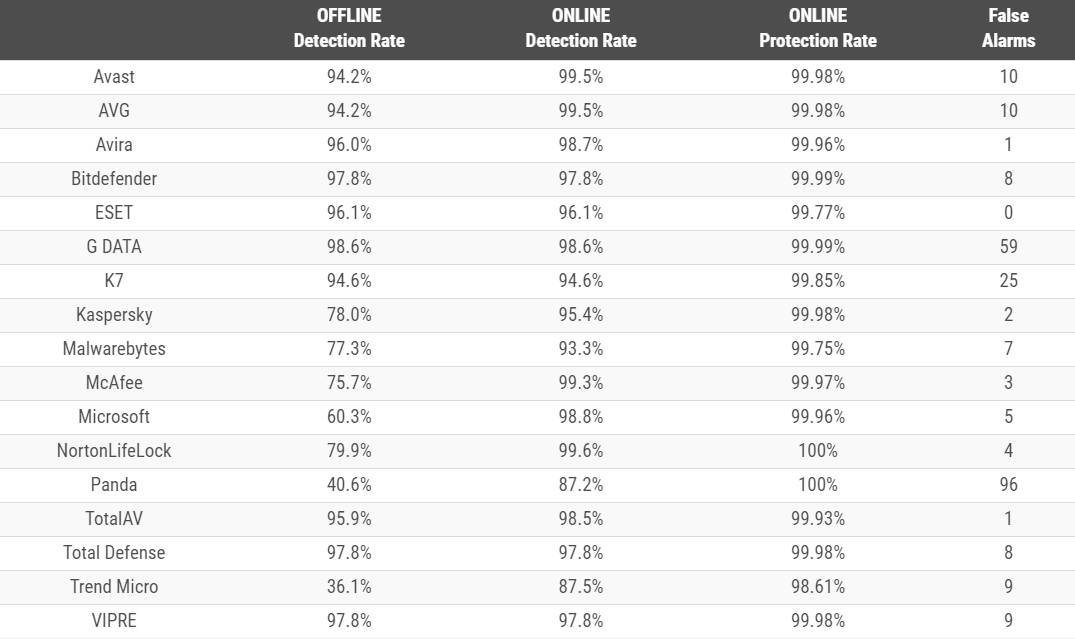Microsoft Defender weaker than competing antivirus software when offline, says report
You may not be receiving top-tier protection offline from Microsoft Defender, according to new data.

All the latest news, reviews, and guides for Windows and Xbox diehards.
You are now subscribed
Your newsletter sign-up was successful
What you need to know
- AV-Comparatives conducted research to figure out what the best consumer products are for malware protection.
- Though it scored well overall, Microsoft Defender did poorly in the "offline detection" category, spotting markedly fewer threats than services such as Bitdefender.
- Microsoft Defender did much better in categories such as false positives, wherein it had relatively few compared to the competition.
Those who rely on Microsoft Defender may be putting themselves in a tough spot when it comes to offline protection, based on results from testing conducted by AV-Comparatives (via Winfuture). In the organization's testing, Microsoft's antivirus solution dropped the ball compared to Avast and Bitdefender, which both excelled at spotting threats without an internet connection.
Before we dive into the results, let's quickly go over what AV-Comparatives threw at the antiviruses it tested: "The test set used for this test consisted of 10,040 malware samples, assembled after consulting telemetry data with the aim of including recent, prevalent samples that are endangering users in the field," the org's report reads. "Malware variants were clustered, in order to build a more representative test-set (i.e. to avoid over-representation of the very same malware in the set)."
With that in mind, here's how Microsoft did:

As you can see in the results, while Defender was a tough cookie when online, it failed to detect nearly 40% of what AV-Comparatives ran by it while offline, possibly due to cloud dependencies. That poor performance made it the third-worst offline antivirus solution on the entire list. Meanwhile, G Data managed to spot 98.6% of threats while offline and there was a three-way tie between Total Defense, VIPRE, and Bitdefender, which all caught 97.8%.
Testing was done at the beginning of March 2022 with all products being put through their paces on fully updated 64-bit Windows 10 rigs. Though you should consult multiple test sources before drawing any firm conclusions, it may be worth checking out an alternative to Defender if you're particularly scared of offline safety and security risks. You can consult the best antivirus software roundup for ideas on where to start (Bitdefender is one option worth considering).
All the latest news, reviews, and guides for Windows and Xbox diehards.

Robert Carnevale was formerly a News Editor for Windows Central. He's a big fan of Kinect (it lives on in his heart), Sonic the Hedgehog, and the legendary intersection of those two titans, Sonic Free Riders. He is the author of Cold War 2395.
